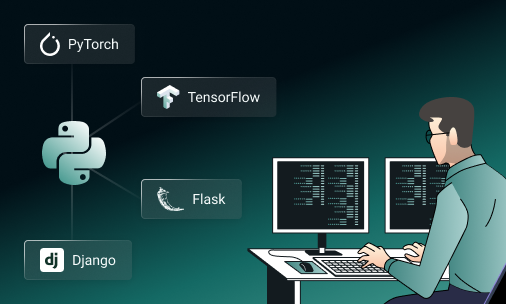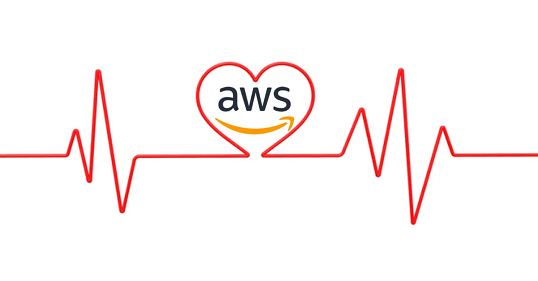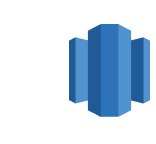
-
Warranty Period
-
20+ years in business
Heads of Engineering and CTOs trust Belitsoft
We develop their Python-based products from idea implementation to maintenance and modernization, and make their lives easier by delegating technical functions to a proactive, experienced, top remote Python team.
Technical executives can Focus More On the Essentials With Us as their Python development partner. They rely on us to extend the functionality of their apps with the features their buyers need, achieving high quality at a lower cost.
Let's Discuss a Pilot ProjectFull Integration
- Exclusively for Your Company
- Alongside Your In-House Staff
- Both U.S. and UK Time Zones
Agility
- No Binding Contracts
- Rapid Staffing
- Adjustable Team Size on Demand
Available Talent
- Cloud, IoT, AI/ML and Data Analytics
- ETLs, Database Migrations, and APIs
- Automation Testing
Custom Python Development
Services
Python Web Development
Python Web UI Development
Python API Development
AI Development with Python
Predictive Analytics with Python
Get forecasts based on trends. After collecting and analyzing historical data your company is interested in, we train a Python model to detect patterns and, on this basis, predict future sales, recognize early signs of illness, detect fraud, and whatever else you’re looking for immediately after encountering new data. Before training, we clean your datasets, study them to select the features that have the strongest relationship with the predicted variable, then split the dataset into training and test data. To train models, we use algorithms (decision trees, K-means clustering, time series, Naive Bayes), Python libraries (pandas, NumPy, matplotlib, seaborn, and scikit-learn), and Python native functions. After training, we evaluate the performance of your model before deploying it into a real-life application.
Python Image Recognition
Recognize objects in real-time in new images or videos. We create image recognition models for use cases you asked for, including user age identification by faces, disease detection, and more. For tasks like classification and segmentation of images, converting written text on paper into digital text, object/action detection, and tracking in videos, we use convolutional neural networks. Before training, we can use available image databases or prepare your images by preprocessing them (adjusting to the same dimensions, scaling pixel data to a standard range, etc.) and augment them by rotating, zooming, injecting noise, etc., to prevent overfitting (memorizing only examples seen before). After training and evaluating the model, we integrate it into a web or mobile app, or deploy it to a cloud platform.
End-to-End Python Development Services
Belitsoft is a TOP Python development company that offers top-tier web and mobile applications, as well as websites.
Python Development Company for Startups
Even after growing into industry giants, many big startups continue to use Python due to its startup-friendly nature. If your project involves large data loads, big data, data visualization, machine learning/artificial intelligence, consider Belitsoft. Our Python developers quickly transform your ideas into reality, build an MVP as soon as possible to attract investment, easily scale the product by adding new features to meet market demands, and integrate smoothly with other software related to your product.
Python Consulting
Our Python consulting company provides expert solutions for healthcare, finance, e-commerce, education, transportation, and more, on how to best use Python. We either develop plans for integrating Python into your operations, or evaluate your existing systems through comprehensive code analysis, security audits, performance evaluations, and scaling assessments to prepare clear documentation with recommendations.
Python Enterprise Development
Our Python development team build applications for enterprises, integrate them with existing legacy databases and non-web applications written in C++, C# (along with its broader Microsoft .NET platform), and Oracle Java. They write code to integrate disparate applications and integrate with LDAP or Active Directory authentication systems. These may be corporate intranet and collaboration platforms like those used by this U.S. government agency or any other type of enterprise systems.
Python 2 to 3 Migration
For companies which have outdated applications with older Python backends with the end of support, we assist with Python migration and application conversion, especially when backwards compatibility is important. We adapt the source code to a newer version using libraries like 2to3, python-future, and six, identify incompatible source code and rewrite it. After porting the source code to Python 3, we conduct testing.
Python Refactoring
Unmaintainable apps have a very real cost. Clean and simple Python code that is well laid out and easy to follow saves time and money in the long term. Less time will be spent on maintaining, testing, and making changes. Future developers are more likely to update easy-to-read and understandable code without needing to rewrite the application from scratch.
Python Automation QA
Our experienced QA engineers design and develop automated tests for the web in close collaboration with the development team, maintain the required test documents (test cases, reports, etc.), and perform performance testing. They are experienced in backend test automation, web UI test automation, and understand the BDD approach, SDLC and QA processes, best practices, testing techniques, and methodologies.
Python Integration Services
Java with Python. We can either invoke Java functionality from Python and call Python functions from Java via a bridge like Py4j, or port the original implementation to the JVM. If you have a Java application project in the machine learning domain and want to integrate it with an irreplaceable third-party library available only in Python, we know the best ways to do that, allowing execution to switch seamlessly between the platforms. You will not encounter any stability issues.
Angular with Python. If you’re not happy with the way you currently implement UI, we are here to help. Angular is a natural choice for UI as well as Python for API. There are three general options to marry them: Angular HttpClient to make REST API calls; Angular's WebSocket client to receive updates in real-time; a message queue like RabbitMQ for asynchronous communication. Our developers will build nice frontends to efficiently visualize and manage your data.
Types of Python Development Solutions
Data-Intensive Applications
While developing ETL pipelines, data analytics platforms, and real-time processing systems, our Python engineers apply best coding practices to prevent crashes and downtime (such as those caused by memory overuse), ensure system reliability, minimize infrastructure costs by reducing the need for extra computational resources, and enhance the scalability of data pipelines to support seamless growth as data volumes increase.
Web Applications and APIs
While creating SaaS platforms, e-commerce systems, RESTful APIs, and GraphQL APIs, our Python developers focus on fostering team collaboration and writing code that simplifies onboarding for new developers and maintaining legacy systems. They prioritize quick iteration on features to enable faster go-to-market timelines and enhance customer satisfaction with reliable, responsive APIs.
Financial and BI Tools
We engineer portfolio management systems, reporting dashboards, and forecasting tools to deliver accurate, real-time financial insights that reduce decision-making risks and improve clarity for business stakeholders, building trust in the software. We also implement industry-recognized approaches to prevent performance issues when handling large datasets in reports.
Real-Time Systems
Our Python app developers create IoT controllers, live analytics, and streaming platforms with a focus on keeping real-time systems responsive under heavy workloads and reliable for time-critical operations. They design solutions that handle streaming data efficiently, reduce infrastructure needs, and minimize downtime, making systems easier to maintain and lowering long-term support costs.
Domain-specific Python Expertise
How to Hire Python
Developers through Belitsoft
Our services include cloud migration planning and analysis to find efficient cloud services for you
Share Your Project Needs
Your project is unique and requires personalization. We’re 100% ready to sign an NDA to get the details of your specific project requirements. Our Python consultants and director of engineering will execute the tailored strategy after a confidential conversation with you.
Shortlist Ideal Candidates
and Interview Them
Give us a few days, and get a list of pre-screened candidates. Senior Python engineers at Belitsoft are already vetted. However, our recruiters choose only those resumes of them that best fit you. During talent screening, get a better understanding of their skills with interviews or tests.
Hire Your Python Developer
Select the right candidates to start your project. It's possible to add or remove developers from the project when you want. The new Python developers will integrate smoothly with your in-house operations and work dedicatedly on your project. You'll get the full control over them through your preferred platforms.
Stay Calm with No Surprise Expenses
- You get a detailed project plan with costs associated with each feature developed
- Before bidding on a project, we conduct a review to filter out non-essential inquiries that can lead to overestimation
- You are able to increase or decrease the hours depending on your project scope, which will ultimately save you a lot of $
- Weekly reports help you maintain control over the budget
Don’t Stress About Work Not Being Done
- We sign the Statement of Work to specify the budget, deliverables and the schedule
- You see who’s responsible for what tasks in your favorite task management system
- We hold weekly status meetings to provide demos of what’s been achieved to hit the milestones
- Low personnel turnover rate at Belitsoft is below 12% per annum. The risk of losing key people on your projects is low, and thus we keep knowledge in your projects and save your money
- Our managers know how to keep core specialists long enough to make meaningful progress on your project.
Be Confident Your Secrets are Secure
- We guarantee your property protection policy using Master Service Agreement, Non-Disclosure Agreement, and Employee Confidentiality Contract signed prior to the start of work
- Your legal team is welcome to make any necessary modifications to the documents to ensure they align with your requirements
- We also implement multi-factor authentication and data encryption to add an extra layer of protection to your sensitive information while working with your software
No Need to Explain Twice
- With minimal input from you and without overwhelming you with technical buzzwords, your needs are converted into a project requirements document any engineer can easily understand. This allows you to assign less technical staff to a project on your end, if necessary
- Communication with your agile remote team is free-flowing and instantaneous, making things easier for you
- Our communication goes through your preferred video/audio meeting tools like Microsoft Teams and more
Mentally Synced With Your Team
- Commitment to business English proficiency enables the staff of our offshore software development company to collaborate as effectively as native English speakers, saving you time
- We create a hybrid composition, where our engineers work with your team members in tandem
- Work with individuals who comprehend US and EU business climate and business requirements
Frequently Asked Questions
- Look for extensive experience: Research a software development partner who has years of practical knowledge in your or related domains.
- Review the company's profile: what number of cases they possess are like your own business, what ambitions they accomplished in the projects, etc.
- Evaluate the company's data security policies: Check their NDA and other intellectual property related contracts.
- Weigh up contact interactions.: Verify the company’s way to set up communication between a remote team and business stakeholders and perform effective project management.
Belitsoft has established a solid project management, responsive communication, and data protection system that guarantees security, transparency, and remarkable quality.
Python applications have an extensive range of capabilities, and Python is increasingly being used to power business intelligence (BI) applications, such as PowerBI services.
- Web applications.
- Console Apps.
- Desktop GUIs.
- Enterprise Applications.
Belitsoft employs a comprehensive and effective vetting process to assess Python development teams. Our evaluation procedure includes a range of techniques, such as assessments, interviews, and project analysis, to determine the technical and soft skills, project impact, and work experience of developers. It’s our mission to provide you with a carefully checked Python development team.
At Belitsoft, we specialize in providing full-cycle software development services and adopt an Agile method. When starting Python development projects, we take the following steps:
- We will provide you with an approximate cost estimate for the project based on the expectations.
- The development team, including scrum masters and project owners, will specify the required scope of work and budget better.
- We plan a timeline for the project by breaking down the tasks and connecting them to the budget and dedicated team to get an initial project timeline estimate.
Python Development Portfolio

Recommended posts
Our Clients' Feedback


















































































































.jpg)
.jpg)
.jpg)
















We have been working for over 10 years and they have become our long-term technology partner. Any software development, programming, or design needs we have had, Belitsoft company has always been able to handle this for us.
Founder from ZensAI (Microsoft)/ formerly Elearningforce